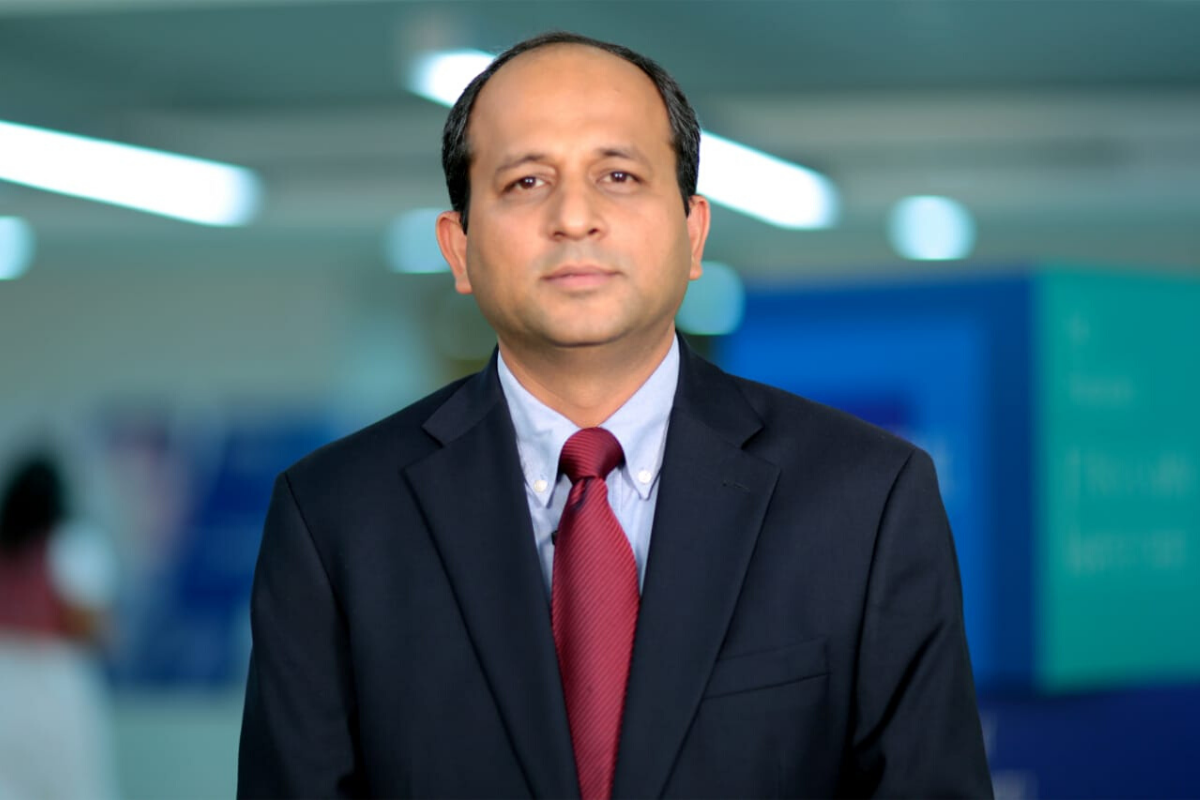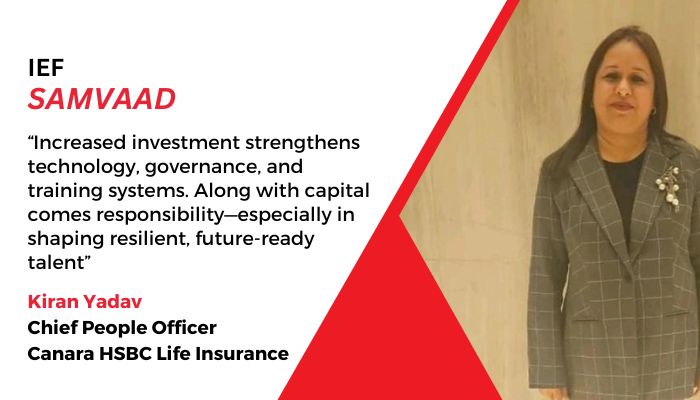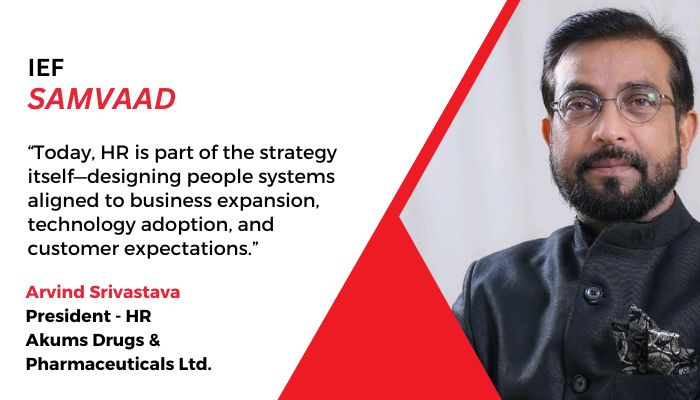With the Union Budget-2020 around the corner, tax expert Ajay Agarwal, Partner – Triage Advisors, talks about the structural reforms, state of Indian economy and his expectations from the annual budget
Q. Please tell us something about yourself. Any noteworthy awards/achievements?
I am a qualified Chartered Accountant with more than 20 years of experience in the field of global taxation and regulatory field. Recently, we have started our own consultancy firm, Triage Advisors LLP. We are headquartered in Bangalore with offices in Kolkata, Mumbai, Delhi, USA, UK and Luxembourg.
In my last stint, I have worked with KPMG in India as a Tax Partner, wherein I discharged multiple roles and responsibilities including tax practice in charge for India-USA. In my 20 years of working as a consultant/advisor, I advised clients on Income-Tax, company law, indirect tax and FEMA regulation. Also, through various deals and transactions, I have assisted clients on corporate structuring, Capital structuring, Dividend planning, Buyback strategies, ESOP planning, Liquidation and on NCLT matters. Further, I have had the good fortune of representing clients at the Income-Tax Appellate Tribunal. In terms of clients, I have worked with domestic funds, VC and PE players in due diligence/transaction support/corporate structuring.
Q. What’s your take on the state of Indian economy? How worrying is the current state?
The data we have seen or received till now, reinforces a strong concern. On one hand, the aviation, automobile and real estate sectors suffered an abnormal demand slowdown, while on the other hand, banking and financial services were weighed down by ballooning bad loans, NBFC crisis and a general credit squeeze. The telecom sector also has gone through a major setback due to governmental dues of about Rs. 1.3 trillion after the Supreme Court judgment. All in all, Indian economy is going through an unprecedented trial.
In my view, the Indian economy is going through a tactical transformation – both organized and unorganized sectors are going through the process of unlearning and learning new rules of the game, which is why we are witnessing slow down across the length and breadth of the economy. Industries and entrepreneurs have now become more vigilant and cautious on all contours of doing business viz corporate governance, corporate compliance, sustainable growth, ethical practices etc..
You might also be interested to read: ‘Ensuring That The Right Talent Is In Place Has Never Been More Critical’ – Dr. Deepak Singh – KPMG India
Q. What structural tax reforms will put the Indian economy on a path of sustainable growth?
After the government has introduced the structural and fiscal reforms, the Indian economy is in a transitional phase. It shall eventually emerge to be stronger as soon as the positives of these reforms have percolated the market. The favorable part of this is that the percolation process is already underway. These reforms were extremely crucial in order to be the cornerstone for sustainable growth and equity. When private participants were allowed in sectors such as power, defence and telecom — which were earlier in the public domain — new regulatory mechanisms followed. However, the power of the regulators, the writ of the concerned government department and the judiciary were limited, and evolving. They had to learn how to ensure transparency, prevent monopolistic practices, protect capital and provide safety to the interest of consumers. The process has proven to be a path of learning both for policymakers and the judiciary, and is still in the works. The changes were mainly structural in nature, and were essential for the public sector-dominated economy to enter a competitive market economy.
The other structural change is reducing the social and economic inequality. Unless high levels of inequality are cut down, there shall be no social stability or economic growth. Policy makers have taken steps like higher taxes for income beyond a threshold level, high rate of indirect taxes on luxury goods in the form of extra levy etc., however, the inequality is on the rise and is becoming a threat to the overall economy due to the widening of this gap.
The introduction of GST was a long overdue reform, but currently as per data available, it reflects shortcomings in GST collections and overall compliances for a variety of reasons. For instance, laws are not drafted appropriately, GST provisions are not taxpayer friendly, systems are running through technology related challenges quite often, laws are amended frequently. Though implementation of GST is a positive move, unless the tax rates are stabilized, uncertainties are addressed in a timely manner, disruptions in the system are removed instantaneously, Indian economy will not be able to get any GST related benefits which it budgeted with its introduction.
Added to the above structural reforms, the government is also committed to reduce the carbon emissions in order to increase the share of renewable energy. This negatively impacts the growth of the automobile industry unless they jump into a new standard. Though the government has taken the steps required to structure the sustainable growth, this shall take time to reflect in a proper growth curve. As we all know, any monumental change requires patience and the result is likely to be stronger and more resilient.
Q. What are your expectations from Budget-2020?
The rudimentary issue of the Laffer Curve which embodies the supply-side economics is that it was intended to and developed for fixing the Western models of economics, which are usually completely organized, unlike 90% of India’s retail sector. As these unorganized sectors are hit by GST and Demonetization, there has not been much done to fix the same. The Pradhan Mantri Kisan Samman Nidhi Yojana does not offer much to resolve the issue. As per the government’s National Statistical Office, unemployment has been very high and household consumption has been significantly low. These issues together raise an utmost concern on the demand curve, and clearly GDP data validates this concern. There is a need for an inclination towards the initiatives to demand-side economics in the Union Budget-2020, in order to resolve the unresolved issues.
For Corporate sector
With the demand deteriorating, consumption sliding and tax revenues under strain, the 2020 budget would be a decider for the growth in the existing slow-paced economy. The major drawback is that the agriculture and industry sectors, which usually together employ about 3/4th of the working population are in deep distress. Agriculture employs around 60% of the population while industry employs about 12%. Unless the government is able to bring growth in the agricultural sector for a few quarters at least, revival of demand shall remain at stake. Slow agrarian growth has brought India into a vicious cycle as it has led to the contraction of demand.
To upgrade the condition of Indian economy, the Finance Minister along with her team of experts are organizing and reorganizing the pre-draft Budget of 2020. In order to bring back economic stability, the ministry should address sector-specific issues in the budget which includes telecom, real estate, power distribution and BFSI, to name a few.
Further, the budget may roll out fiscal stimulus to counter the growth slowdown either by way of change in taxes or by higher expenditure. As per the latest estimates, GDP received a boost from public and defence services which resulted in 11.6% GDP in the second quarter in comparison to 8.6% last year. Thus, we can speculate that the government expenditure may boost economic growth.
Considering the slowdown in growth of economic condition, the upcoming Budget is walking an arduous journey trying to give birth to a new revolutionary change by slashing corporate tax rates from 30% to 22%, 25% to 15% for new manufacturers, thus escalating the consumption. Though it was expected to boost the bottom line companies, it failed to augment the consumption rate. This move may increase the profits of a company, but in order to increase the demand, there should be a rise in disposable income of the consumers as well. But will the increase in disposable income proliferate the consumption rate as well? This we don’t know, however, it’s worth embarking on this journey.
For individuals
Based on the various discussions in the public domain, it is likely that the government may trim personal income tax rates and possibly consider reducing tax on long-term capital gains from equity investments in the Union Budget-2020, in order to spur economic growth. If the net disposable income increases that is resulting due to reduction in income tax slab rates, there could be an enhancement in consumption and spur the overall demand of goods and services.
The lower tax rate slabs may be good news for the middle-class taxpayers and they may channelize the extra funds in a financially sound investment schemes, thereby helping the economy to grow. Government welfare measures for individual taxpayers may bring in further stress on the finances, but striving towards a fiscal consolidation, a 3% fiscal deficit may be reached in the subsequent year.
About Ajay Agarwal
Ajay Agarwal, Partner – Triage Advisors, is a Chartered Accountant with 20 years of experience. Before this, he was a Partner with KPMG in his last stint. In KPMG, he was also based in New York as a Leader for the India-USA practice.
His experiences include advisory on Income-Tax, company law and various other laws viz GST, FEMA etc. He has also worked with domestic funds, foreign venture funds and PE houses for providing due diligence and transaction support in M&A.






